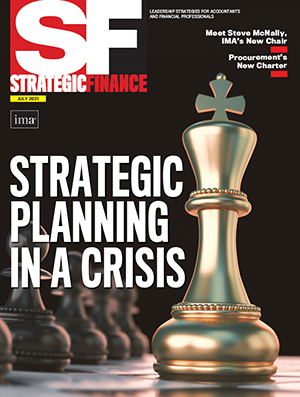Legal or regulatory violations may get the most attention when it comes to ethics-related issues, but they are far from the only ethical concerns for companies. Corruption is the abuse of entrusted power for private gain; unfortunately, many forms of corruption and unethical behavior are technically legal. The primary ethical fault line for companies is reputational risk. Vocal employees can leak embarrassing information about the organization’s business practices. Alison Taylor, executive director at Ethical Systems and adjunct professor at New York University Stern School of Business, notes that there’s public focus on corporate hypocrisy and companies’ willingness to protect their employees and the environment.
Draconian compliance programs can have unintended behavioral consequences, such as employees evading regulations and switching off ethical reasoning and decision making. A better alternative is to involve employees in shaping the company’s values and commitments, acknowledging that many business ethics decisions aren’t black-or-white, and encouraging them to use their own judgment and voice, while providing guidance on navigating difficult issues.
“We’ve developed a compliance-led approach to eliminating wrongdoing, along with a separate approach to CSR [corporate social responsibility] that is very marketing-led,” Taylor says. “Both functions have ethical responsibility, but neither owns the culture or decision making.”
Most organizations would benefit from a more strategic approach to ethics, with formal structures to coordinate decision making across human resources, compliance, risk management, legal, CSR, government/investor relations, the C-suite, and the board.
CORPORATE PURPOSE
CSR is relevant to ethics and organizational culture. Management should reflect societal and environmental concerns in corporate strategy. It’s important for compliance, ethics, and finance teams to understand and monitor CSR trends. Many companies already have an internal function dedicated to CSR; sustainability; environmental, social, and governance (ESG) policies; corporate citizenship; and stakeholder capitalism.
“Companies that perform well on corporate-responsibility issues do better financially over the long term,” Taylor says.
Today, employees’ interests are focused not only on pay and benefits, but also on CSR and ethical issues such as climate change, client acceptance, and diversity and inclusion.
“The importance of corporate values and purpose is increasing for employees, particularly young workers,” Taylor says. “A credible approach to corporate responsibility is therefore essential in motivating and retaining employees.”
Rules ordering people not to do the wrong thing have limitations. Help to measure your organization’s positive impact and empower employees to shape and drive a more ethical business culture.
Taylor argues that current ESG reporting metrics rely too heavily on self-disclosure and policy commitments at the expense of management capacity and meaningful action.
“A great deal of work has been done to identify and apply clear, relevant metrics and issues for each industry, but comparability and consistency across different operating contexts is extremely challenging,” Taylor says.
BEHAVIORAL INSIGHTS
Taylor suggests applying behavioral-science research on ethics and how human beings really act.
“We’re all far more influenced by the social context and susceptible to motivated reasoning and ethical blind spots than we’d like to believe, and we all look to leadership to set ethical norms,” she says.
Such insights can help professionals to think more fruitfully about organizational design and culture, rather than focusing their efforts exclusively on finding and removing “bad apples.” There must be meaningful sanctions for illegal and unethical behavior. But rules can’t be made for every eventuality, so management needs to make employees more self-aware, considered, able to raise concerns, and knowledgeable about what to do in ambiguous situations.
EFFECT CULTURAL CHANGE
Employees are often effective at establishing and reinforcing an ethical culture as transparency increases. But corporate scandals have shown that internal whistleblowers have been ignored, even fired, so hotlines for reporting misconduct are insufficient. A well-designed culture-assessment process can help management identify where the biggest concerns lurk.
“I’d encourage all employees to show interest in ethics and to raise concerns and questions in team meetings, company town halls, and discussions with leadership, as well as to start building a culture of internal debate and awareness,” Taylor says.
Organizations need to make progress in aligning annual risk assessments with sustainability-materiality assessments to incorporate systemic issues such as climate change. Strategic-planning teams can use scenario planning, a prerequisite for a credible climate strategy. Many companies’ weakness is focusing on individual events and short-term metrics at the expense of a more systemic approach.
“Scenario planning can open up opportunities for innovation, make companies more resilient to change, and help align strategic direction across the core business and oversight functions, including those responsible for ethics,” Taylor says.
Ethics and sustainability issues present challenges because causation and measurement are both difficult. Environmental costs such as emissions can be easier to quantify, but measuring the climate impacts of your supply chain is still a Herculean task. Measuring the benefits of an effective compliance function or an improved reputation is even harder.
“In the former case, we’re talking about successfully embedding perceptions of risk within an organization; in the latter, we’re trying to evaluate and measure public perceptions,” Taylor says.
Today, 61% of the value of the S&P 500 is in intangible factors such as research and development, brand, reputation, and network effects. Reputation has never been so important, and mitigating reputational risk is a big motivating factor in prioritizing ethics, sustainability, ESG, and CSR.

July 2021



